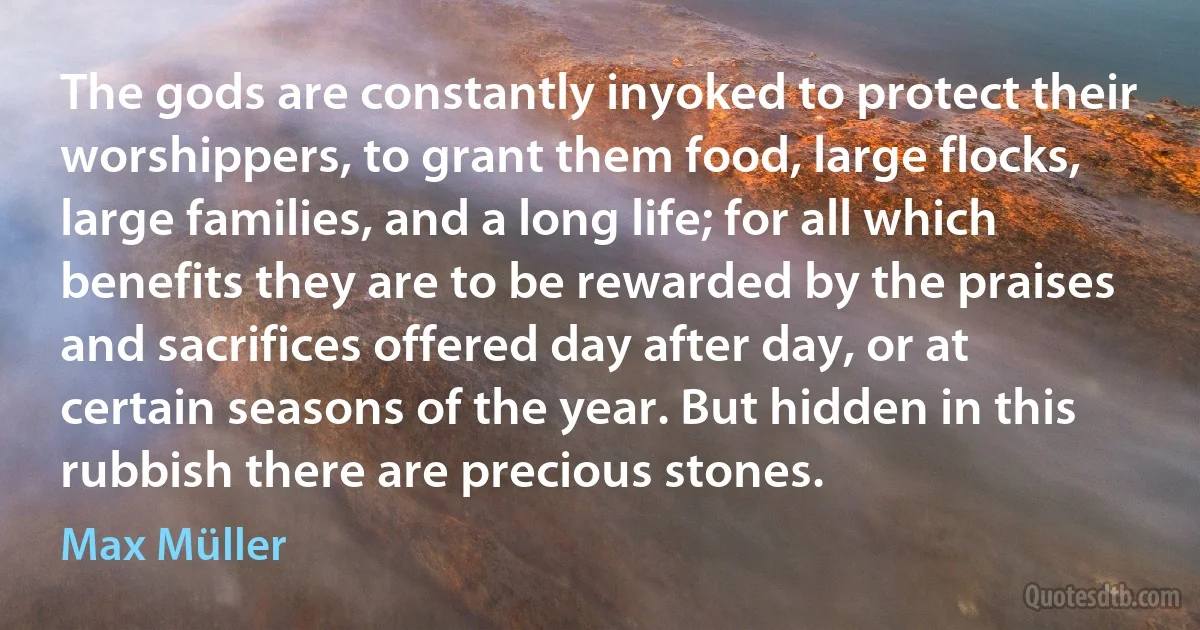Rubbish Quotes - page 7
This is complete rubbish. They did this a month and a half ago when there was another incident. We want peace in South Asia. We want no terror in South Asia. We don't export terror. We have zero tolerance for terror whether it is within India or outside India. Pakistan is only taking half measures in the fight against terrorism. Pakistan is paying the price for not heeding our advice.

P. Chidambaram
Men don't know anything! Men don't know when their lives became so entirely awful, when everyone else turned into such a tosser! A man does not know how he came by the half a pie he is holding in his hand. And scientists-those frauds!-seize on this, and try to use it as proof of the mysteries of human consciousness and the unknowable nature of the brain, which is rubbish! The brain is the simplest organ in the body. It only has three bits. There's the front bit, which is the bit you scratch when you come in at half one in the morning, and the person you live with says, "Where the fuck were you?”.

Dylan Moran
I am one of the few goyim who have ever actually tackled the Talmud. I suppose you now expect me to add that it is a profound and noble work, worthy of hard study by all other goyims. Unhappily, my report must differ from this expectation. It seems to me, save for a few bright spots, to be quite indistinguishable from rubbish.

H. L. Mencken
We all felt happy and excited because it was Diwali. My mother had saved lot of small coins from her shopping and gave them to me to buy crackers Stuffed full with sweets and feeling that life was grand I ran towards the market. Then I saw a blind beggar. He sat in the hot sun by the edge of the unpaved road while gusts of wind raised clouds of dust and rubbish over him. ‘Andhalalya paisa dey, Bhagwan', he kept on saying to the passers, ‘Give one paisa to this blind man, oh! Bhagwan.' In front of him there was a rusty cigarette tin. It struck me alongside my bright happy world there was a world of misery and pain.

Baba Amte
It's really weird but my parents used to tell me I could do anything I wanted to. I used to say, 'Well, what if I want to be an astronaut and go to the moon?" and my dad used to say, 'If you really want to you can'. I used to think he was talking absolute rubbish, particularly when I was 21 and he was still saying that. But in a way it really stuck with me cos my dad ended up doing exactly what he wanted to do. To an outside point of view he's totally conformed, he's had a family and four kids but he's only ever done things that made him genuinely happy. "He jacked in his job cos it made him unhappy and he didn't want to compromise his entire life just for the sake of carrying it through. It's very admirable, that quality, and I think it's very rare in people. Most people feel so conditioned, so oppressed by everything that goes on around them that they just give in. You have to refuse to give in.

Robert Smith (musician)
After Aristotle and Ptolemy, the idea that the earth moves - that strange, ancient, and "entirely ridiculous", Pythagorean view was thrown on the rubbish heap of history, only to be revived by Copernicus and to be forged by him into a weapon for the defeat of its defeaters. The Hermetic writings played an important part in this revival, which is still not sufficiently understood, and they were studied with care by the great Newton himself.

Paul Karl Feyerabend
According to old records, it has been a rule with the Muslim rulers from the first to build mosques, monasteries, and inns, spread Islam, and put (a stop to) non-Islamic practices, wherever they found prominence (of kufr). Accordingly, even as they cleared up Mathura, Bindraban etc., from the rubbish of non-Islamic practices, the Babari mosque was built up in AH 923 (?) under the patronage of Sayyid Musa Ashiqan in the Janmasthan temple (butkhane Janmsthan mein) in Faizabad Avadh, which was a great place of (worship) and capital of Rama's father'...'A great mosque was built on the spot where Sita ki Rasoi is situated. During the regime of Babar, the Hindus had no guts to be a match for the Muslims. The mosque was built in AH 923 (?) under the patronage of Sayyid Mir Ashiqan' Aurangzeb built a mosque on the Hanuman Garhi' The Bairagis effaced the mosque and erected a temple in its place. Then idols began to be worshipped openly in the Babari mosque where the Sita ki Rasoi is situated.

Babur
I don't like it,"" said Lenina. ""I don't like it."" She liked even less what awaited her at the entrance to the pueblo, where their guide had left them while he went inside for instructions. The dirt, to start with, the piles of rubbish, the dust, the dogs, the flies. Her face wrinkled up into a grimace of disgust. She held her handkerchief to her nose.
""But how can they live like this?"" she broke out in a voice of indignant incredulity. (It wasn't possible.)
Bernard shrugged his shoulders philosophically. ""Anyhow,"" he said, ""they've been doing it for the last five or six thousand years. So I suppose they must be used to it by now.""
""But cleanliness is next to fordliness,"" she insisted.
""Yes, and civilization is sterilization,"" Bernard went on, concluding on a tone of irony the second hypnopaedic lesson in elementary hygiene. ""But these people have never heard of Our Ford, and they aren't civilized.""

Aldous Huxley
He didn't like it all that much when he first came - all the rubbish and the rush - but it was growing on him, it wasn't half bad. Coming to the city was like entering a tunnel, he said, and finding to your surprise that the light at the end didn't matter; sometimes in fact the tunnel made the light tolerable.

Colum McCann
Not without a slight shudder at the danger, I often perceive how near I had come to admitting into my mind the details of some trivial affair, - the news of the street; and I am astonished to observe how willing men are to lumber their minds with such rubbish, - to permit idle rumors and incidents of the most insignificant kind to intrude on ground which should be sacred to thought. Shall the mind be a public arena, where the affairs of the street and the gossip of the tea-table chiefly are discussed? Or shall it be a quarter of heaven itself, - an hypæthral temple, consecrated to the service of the gods? I find it so difficult to dispose of the few facts which to me are significant, that I hesitate to burden my attention with those which are insignificant, which only a divine mind could illustrate. Such is, for the most part, the news in newspapers and conversation. It is important to preserve the mind's chastity in this respect.

Henry David Thoreau
We are to remember what an umpire Nature is; what a greatness, composure of depth and tolerance there is in her. You take wheat to cast into the Earth's bosom; your wheat may be mixed with chaff, chopped straw, barn-sweepings, dust and all imaginable rubbish; no matter: you cast it into the kind just Earth; she grows the wheat, - the whole rubbish she silently absorbs, shrouds it in, says nothing of the rubbish. The yellow wheat is growing there; the good Earth is silent about all the rest, - has silently turned all the rest to some benefit too, and makes no complaint about it! So everywhere in Nature! She is true and not a lie; and yet so great, and just, and motherly in her truth. She requires of a thing only that it be genuine of heart; she will protect it if so; will not, if not so. There is a soul of truth in all the things she ever gave harbor to. Alas, is not this the history of all highest Truth that comes or ever came into the world?

Thomas Carlyle
The most important mine of Jesus-Maria at this time was one called Santa Juliana, which had been the means of alternately making and sinking several splendid fortunes. This mine had then reached a depth of between eight and nine hundred feet, and the operations were still tending downwards. The materials were drawn up by mule power applied to a windlass: but as the rope attached to it only extended half way down, another windlass had been erected at the distance of about four hundred feet from the mouth of the cavern, which was also worked by mules, and drew the ores, etc., from the bottom. On one occasion, as I was standing near the aperture of this great pit, watching the ascent of the windlass-rope, expecting every moment the appearance of the large leathern bucket which they employ for drawing up the minerals as well as the rubbish and water from the bottom, what should greet my vision but a mule...

Josiah Gregg
There are, without doubt, great possibilities in the serious exploitation of the astronomical tale; as a few semi-classics like "The War of the Worlds", "The Last and First Men", "Station X", "The Red Brain", and Clark Ashton Smith's best work prove. But the pioneers must be prepared to labour without financial return, professional recognition, or the encouragement of a reading majority whose taste has been seriously warped by the rubbish it has devoured. Fortunately sincere artistic creation is its own incentive and reward, so that despite all obstacles we need not despair of the future of a fresh literary form whose present lack of development leaves all the more room for brilliant and fruitful experimentation.

H. P. Lovecraft



